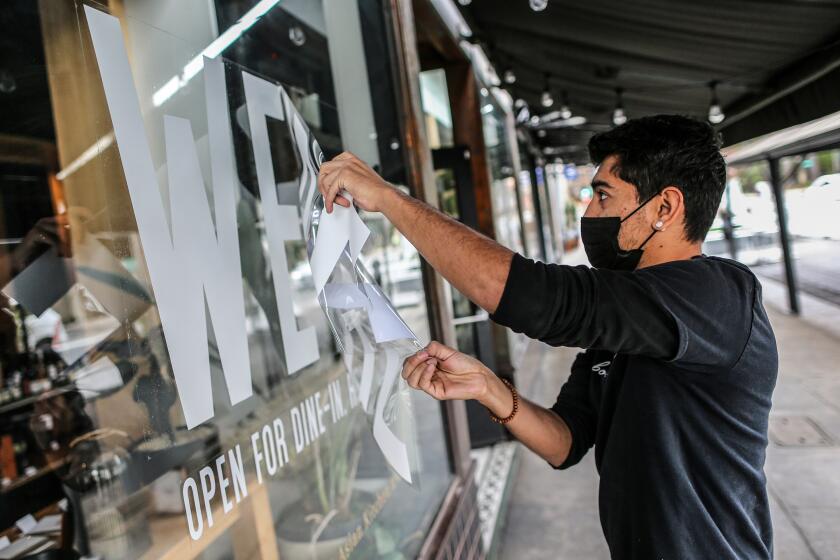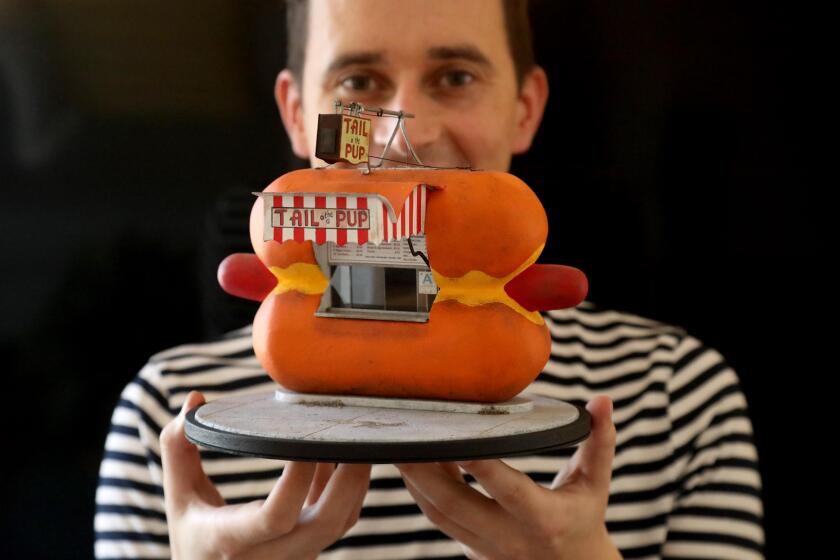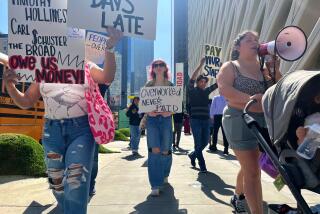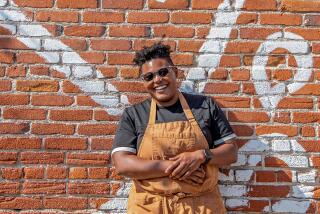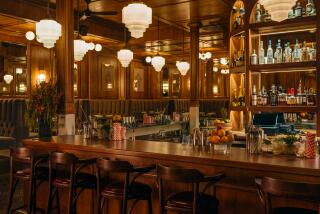The 101 Coffee Shop was my diner around the corner — before COVID-19
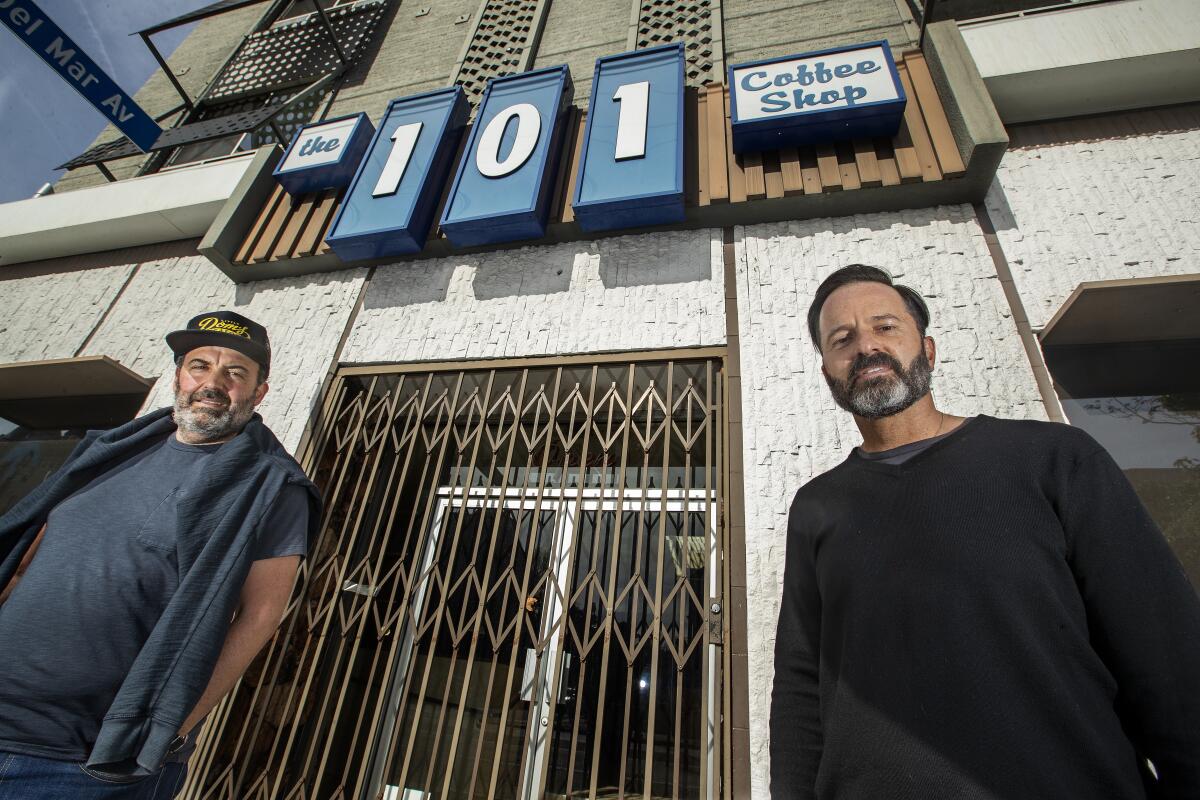
I was lucky for so many years to live around the corner from the 101 Coffee Shop. Open from early in the morning to very late at night, it had the kind of comforting diner vibe and menu that almost always could scratch my itch or soothe me when I needed soothing.
Maybe I was tired and nothing but a tuna melt on crisp, buttery sourdough would do. Maybe I’d had a rough day and craved meatloaf and mashed potatoes.
Who doesn’t need to sit at a counter and slurp a milkshake sometimes, especially one made with vanilla ice cream, peanut butter and honey? I could have it (while happily eavesdropping) with a salad full of corn, beets, edamame and green beans and pretend that it would all balance out.
It didn’t hurt that my Hollywood diner around the corner was among the coolest of the cool in the city. That people came from all over the world to eat there because they’d heard that it was great for celebrity spotting or knew about it from “Swingers” or “Entourage” or that episode of “Comedians in Cars Getting Coffee” in which Jerry Seinfeld and Judd Apatow schmoozed in one of its booths over burgers.
When I had house guests, I could hustle them down the block for breakfast — and even if they didn’t get to see a movie star while they were eating, they could scooch their way into a deep booth and take in the mid-century-style rock wall and hanging globe lights and get their silver-dollar pancakes served to them by a beautiful tattooed waitress and feel as if they were experiencing the L.A. they’d imagined.
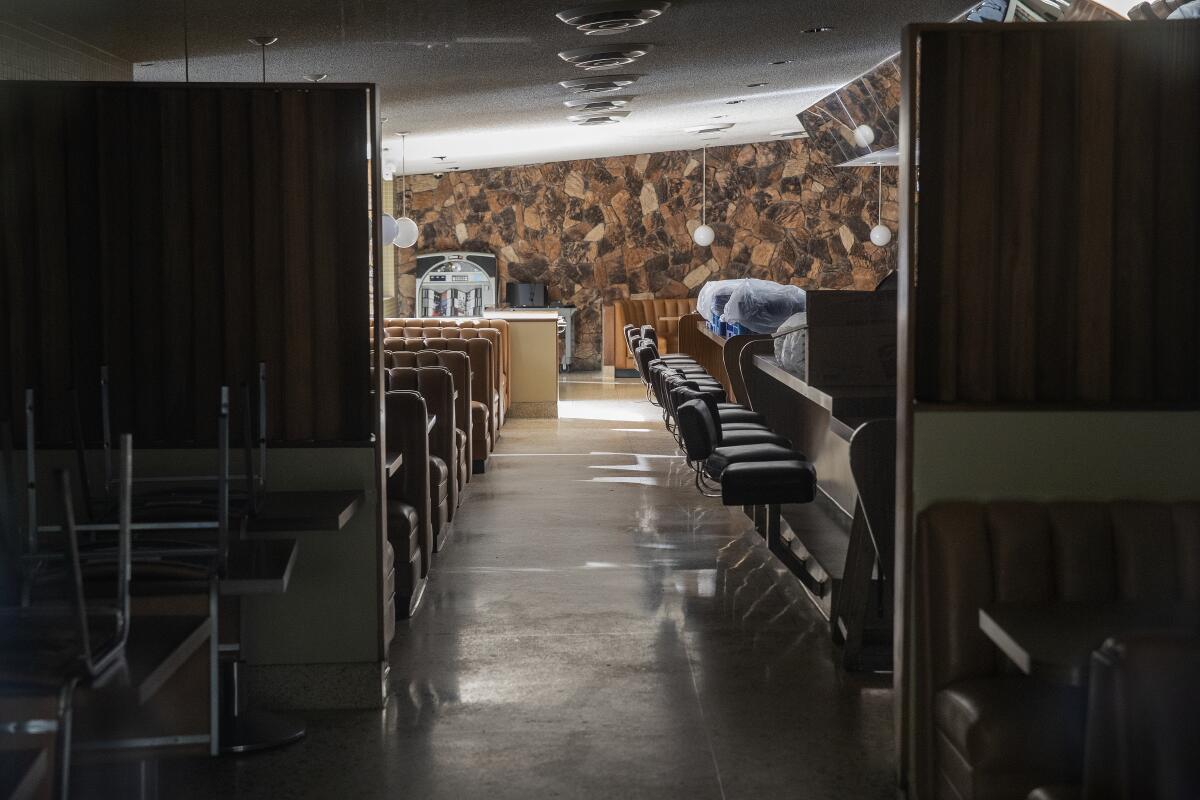
I didn’t stop to think about what a luxury it was to be able to count on the place I simply called “the 101” until news broke last week that my diner around the corner had — without any last goodbyes — closed for good.
These pandemic months have been a time of recognizing again and again as they’re yanked from us the luxuries we once took for granted but now can’t.
For me, one of those lost luxuries is the ability to eat your diner burger and dip your diner French fries into ketchup in blissful ignorance of our restaurants’ daily mighty struggle to survive.
It’s always been a tough business. But just how tough is impossible to ignore now, as beloved dining establishments all over our city that haven’t got the government or landlord assistance they need are forced to shut down forever, laying off staff who have worked so hard for them — and for all of us — for years.
COVID-19 restrictions are closing many L.A. restaurants. Bone Kettle, a small family-run restaurant, refuses to go down without a fight.
The 101 — which kept its doors open only for a few weeks after the city’s first stay-at-home order in mid-March — was one of those places that had a particularly dedicated, longtime staff. A lot of them, I’m told, have been having a hard time making ends meet for months now. After they learned that the diner was closing for good, they launched a GoFundMe campaign asking for help.
“For many of us, employees and patrons alike, the 101 Coffee Shop wasn’t just a restaurant. It was home,” they wrote. “It was our Cheers, our Central Perk. If you know, you know. Hollywood will never be the same.”
I am inclined to agree. I’d be surprised if a similarly inviting, stay-as-long-as-you-like kind of comfy neighborhood place comes in to take over the 101’s space. Because here’s what I know now about restaurant economics that I didn’t have to know all those years as I walked down the block with my husband and dog to pick up the 101’s weekly special fried chicken, which saved me on countless Thursday nights when I’d run out of steam and hadn’t planned anything for dinner:
The diner, located in the Best Western Plus Hollywood Hills Hotel, was paying the hotel’s owners more than $300,000 a year in rent, which adds up to a whole lot of pancakes and burgers and fried chicken dinners. Partners Warner Ebbink and chef Brandon Boudet — who created the hip spot 20 years ago on the site of previous plainer coffee shops — were expecting a rent increase this June, when their lease was up for renewal.
In 2015, they’d opened MiniBar, a tiny but perfect retro watering hole in the hotel. Before the pandemic, the 101’s profits already were being squeezed by a variety of different forces, including the rising minimum wage, Ebbink told me.
He said he likened owning a restaurant to being a boxer: “You’re constantly getting hit from all sides and you’re doing your best always to stay on your feet.”
As costs rose at the 101, options were limited to defray them, he said, especially since people expect to pay only so much for a diner experience.
And then came the pandemic, which, to continue Ebbink’s boxer analogy, delivered the diner the knockout punch.
The 101 Coffee Shop was their first restaurant, and he and Boudet, who both met their wives there, are sentimental about it. But they now have other restaurants: Little Dom’s in Los Feliz and Little Dom’s Seafood, which they opened in Carpinteria late last summer.
Back in March, the plan at first was to try to keep both Little Dom’s and the 101 open as long as possible for takeout. But while Little Dom’s higher-end Italian American menu started to do well as soon as it converted to to-go, the diner fare didn’t.
The reason is simple, Ebbink told me. If you’re going to make the effort to pick up takeout — or pay the premium of delivery services — you’re much more likely to do so for food you can’t whip up yourself.
“You want a burger, you’ll go to In-N-Out,” he said. “You’ll make eggs. You’ll make pancakes. You’ll make French toast.”
Little Dom’s also did well offering meal kits for fresh pasta and pizza, and it had 45 seats outdoors, which helped when outdoor dining was possible. The 101 has no outdoor space — and the hotel parking lot seemed an unlikely draw.
Ebbink said he was grateful to Mel and Bernie Adler, whose family has owned the hotel since the late 1940s, for taking a chance on him with his first restaurant. But after a loan from the Paycheck Protection Program ran out, without a reduction or forgiveness, he had no means to cover the rent either for the closed diner or the closed bar — then or anytime in the near future. So he reached a settlement with the hotel and bailed. No more 101. No more MiniBar.
No more neighborhood comfort around the corner, for me or for so many others.
Social media is now full of say-it-ain’t-so reminiscing — of nursing heartbreaks and hangovers there, of post-concert parties, of writing scripts and making deals and kissing in the booths.
Can seeing old L.A. restaurants and shops up close stir us to fight to help them survive COVID-19? Kieran Wright is creating miniature versions of some of our favorites
Which brings me back to what, in the end, made the 101 so special. More than the food, it came down to the vibe, which in large part came down to the staff.
“It was just like cozy warm in there,” said Tomasa Moody, who started cooking at the 101 five years ago.
Ebony Lane, who began serving at the 101 after Jerry’s Famous Deli on Beverly closed down on her in 2013, said she worked the last shift at Jerry’s and now at the 101, too. Out of work since March, she’s behind on her rent and just barely covering other debts, including a big balance left over from dental surgery. She’s trying to launch a home business selling candles. She’s trying to stay upbeat. But when she starts to reminisce, the tears come.
She told me about engagement parties and wedding parties at the diner, about a woman whose water broke just as she was leaving the 101 and who stopped in to show off the newborn on the way home from the hospital. “We had a lot of people who came in there for coffee when they didn’t have any money to cover it. We’ve bought their meals and listened to their stories — all kinds of stories of heartbreak,” she told me.
Sally Stewart started at the 101 when it opened. She’s married to a touring musician who’s also had no work since March. For years, she served tables with few days off, saving the great money she earned in tips so they could afford to buy a house. Now they’re fighting to keep that Sylmar home they bought 10 years ago, and trying to portion out and then stretch the meals they make from bargain bulk food.
But, as with Lane, it wasn’t those personal woes that got her crying when we talked. It was her memories of the regulars.
She told me about the sticky “syrup kisses” she always got from the neighborhood kids after they had their pancakes, how she would wear that maple-syrup scent all day long as she worked, how she watched the children she knew as babies grow old enough to come in to enjoy the diner on their own.
“I’d just like to have the chance to say goodbye,” she told me, in tears.
So would I. But these days, goodbyes are luxuries.
More to Read
Sign up for Essential California
The most important California stories and recommendations in your inbox every morning.
You may occasionally receive promotional content from the Los Angeles Times.
